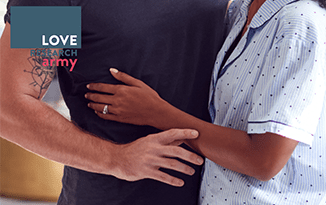
Researcher(s)
Jessica Gorman, PhD, MPH, Oregon State University
Summary
As many as two-thirds of women diagnosed with breast or gynecologic cancers (BGC) during young adulthood, age 18-39 years, experience negative effects of cancer and cancer treatment on their reproductive and sexual health (RSH). The RSH consequences of cancer are among the most distressing aspects of survivorship for young adult BGC survivors and their partners. These younger couples are particularly vulnerable to cancer’s negative effects on RSH because they are at a developmental stage concerned with establishing intimate relationships and building families. RSH distress after cancer is associated with worse depression and poorer quality of life. Effective partner communication and dyadic coping (i.e., coping as a couple) are critical for managing the RSH distress and maintaining relationship health and quality of life. However, our formative research indicates that young BGC couples report significant challenges in communicating about and coping with the RSH consequences of cancer, leaving them at risk for poor outcomes. Yet surprisingly, no evidence-based interventions exist that specifically target the reproductive distress experienced by young couples facing BGC. To reduce the burden of cancer for young BGC survivors and their partners, there is an urgent need to develop feasible, evidence-based strategies that can enhance couples’ communication and dyadic coping in an effort to help effectively manage couples’ RSH distress and minimize the negative effects on quality of life.
Purpose of the Study
We are doing this research to test the helpfulness of two programs designed to teach breast and gynecologic cancer survivors and their partners ways to communicate and cope with physical, emotional, and relationship challenges after cancer. Couples (cancer survivor and their partner) will be randomly assigned to one of two programs, with 4-5 weekly sessions (1.5 hours each) that will be delivered to the couple by a trained counselor via Zoom.
What does participation involve?
- All participants will be asked to complete 3 online surveys that are about 30 minutes each, one before the intervention and 2 afterward. Some participants will also be invited to participate in a qualitative interview after the intervention is over.
- Patient is a cancer survivor diagnosed between the ages of 18 and 39
- Patient age is between 18 - 44 years
- Patient has a cancer diagnosis 6 months – 5 years prior to enrollment date
- Patient diagnosed with breast or gynecologic cancer (ovarian, cervical, uterine, vulvar, vaginal)
- Cancer stage 1-4
- Ability to participate in a videoconference interview (Phase 2) or videoconference intervention (Phase 3)
- Has a committed partner who is willing to participate (any gender/sexual orientation)
- English speaking
- High speed internet access via a smart phone, tablet and/or computer
Inclusion criteria for partner participants
- Age 18 or older
- English speaking
- Ability to participate in a videoconference interview (Phase 2) or videoconference intervention (Phase 3)
- High speed internet access via a smart phone, tablet and/or computer
Where?
U.S. / Virtual
How can I sign up for this study?
By completing informed consent online provided through the survey link.
